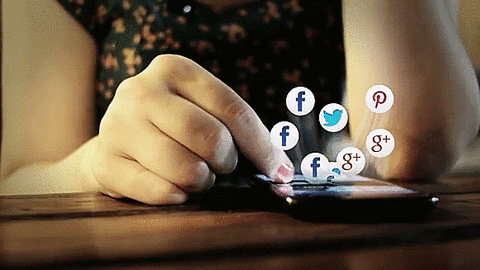Be honest, have you ever said: “My kid would never do that”? Yeah, we have too. Except, the thing is, kids have this neat trick where they say one thing and do something else altogether.
It can be for any number of reasons. They don’t want to disappoint you, they think they’ll get in trouble or they did it to impress their friends.
There are even studies that show that as kids move into different peer groups (i.e. from the family group to the friend group) their values adapt to account for their new peer group too. It’s an evolutionary part of our brain that craves acceptance.
So, even if you think your kid would “never do that”, you might want to have a failsafe in place in case they feel they have to.
Take the send nudes craze, for example.
We already know that our kids are being exposed to hardcore pornographic images earlier than any generation before them (11 years old and declining), and things like the “send nudes” craze doesn’t help.
What does ‘Send Nudes’ even mean?
Yup, Send Nudes is definitely something you think “my kid would never do that.”

Yet 54% of college students admitted to sexting (sending sexually explicit messages, pics and videos) when they were minors. When minors were asked this question, the percentage was much lower.
Which group do you think is lying?
Is Send Nudes really that big of a deal?
The Send Nudes phrase has grown so rapidly in popularity, you can now buy SEND NUDES merchandise on the likes of Amazon and from celebrities like Kim Kardashian.
It’s likely that the trend will fade away as quickly as it has appeared, but you have to ask yourselves whether this is a silly, frivolous phenomenon you can ignore. Your kids might say it’s nothing more than a joke and to stop taking it so seriously.

But kids often don’t think they’ll be the subject of shared nude pics of themselves or “revenge porn”. Despite what they think (and what apps advertise) there is actually no such thing as a private picture or video.
In fact, one report from Plan International Australia and Our Watch, titled ‘Don’t send me that pic’, revealed that 600 Australian teenage girls’ reported that receiving unwanted and uninvited sexually explicit content online is now considered common behaviour.
MORE IMPORTANTLY: Creating or sharing explicit images of a child is illegal, even if the person doing it is a child. They are breaking the law if they:
- take an explicit photo or video of themselves or a friend
- share an explicit image or video of a child, even if it’s shared between children of the same age
- possess, download or store an explicit image or video of a child, even if the child gave their permission for it to be created.
And if you’re the parent that is paying for the device or device plan? You can also be held responsible.
So, what can we do about it as parents?
First, we’ve got to stop burying our heads in the sand about this.
It’s a sad reality, but we need to start having these conversations with our kids earlier than we thought we’d have to.
With indecent images only a four-letter search term away online, it’s more important than ever that we explain to our kids the difference between realistic and appropriate habits when it comes to relationships and dating vs. hardcore pornographic and crass sexual images online.
As they age, it’s important we also continue to have these conversations, no matter how uncomfortable they are. ????
Secondly, we need to start monitoring their social media.

As much as they are going to hate it, we are going to have to start monitoring our kids’ social media. There are age limits to social media accounts for a reason.
If your kids aren’t comfortable with you taking a quick look at their phone at any moment, it is often because there is something on their device they don’t want you to see. More likely than not, this is behaviour they don’t want you to see.
Finally, we need to combat the normalcy of obvious and public sexuality.
How do we do that? Well, it’s up to you how you want to tackle that particular topic. We’ve always found that saying “would you want your parents or grandparents to see this?” is often a good measurement of which messages, photos or videos kids should consider as appropriate.
After all, if you don’t want your Mom, Dad, Grandma or Grandpa to see it, you shouldn’t send it out into the world wide web.
RELATED: Want to know more about protecting your kids online?
Are you concerned your child might be sexting? Do you want help actively tackling this challenge? Get in touch with one of our experts today.